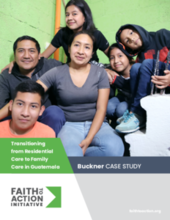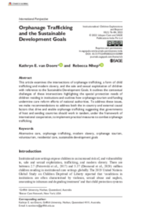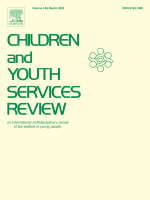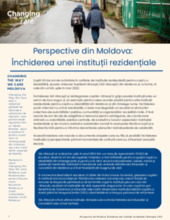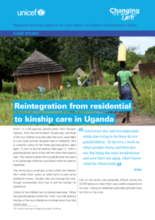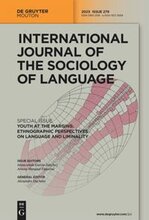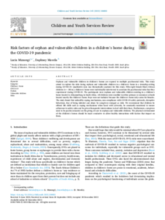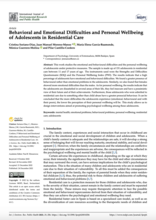Displaying 31 - 40 of 1460
The story of Buckner Guatemala’s transition from residential care to family care is told in this recently released Faith to Action case study. The case study details their experience through three stages of transition—learning, preparation and planning, and full transition—with transparency. It addresses common challenges for transitioning organizations, as well as the strategies Buckner took to overcome them.
This article examines the intersections of orphanage trafficking, a form of child trafficking and modern slavery, and the sale and sexual exploitation of children with reference to the Sustainable Development Goals. It outlines the contextual challenges of these intersections highlighting the special protection needs of children residing in institutions and outlines how orphanage tourism and funding undermine care reform efforts of national authorities.
This Children and Youth Services Review study performed a systematic review of research on training programs aiming the fostering of emotional and mental health in residential youth care. A systematic search was conducted in nine digital databases and other sources (websites, relevant journals, reference lists of included articles and relevant reviews), for publications from 1980 to 2021.
After 60 years of serving as a residential institution for children with disabilities, the Hîncești Auxiliary Boarding school (SIA Hîncești) in Moldova closed its doors to children in May 2022. The closing of Hîncești SIA serves as a harbinger for what is possible for other institutions for children with disabilities in Moldova and around the world.
După 60 de ani de activitate în calitate de instituție rezidențială pentru copii cu dizabilități, Școala-Internat Auxiliară Hîncești (SIA Hîncești) din Moldova și-a închis, în cele din urmă, ușile în mai 2022. Închiderea SIA Hîncești și reintegrar
This case study details the experience of Attim, a 54-year-old grandmother from Eastern Uganda who provides care for her grandchildren after they left residential care. Social workers in Uganda often find that placement with extended family members is the most appropriate option for children leaving residential care.
This article examines how language, liminality, and social marginalization converge in the institutional lives of two displaced children in Angola. A displaced child is very likely to be placed into institutionalized care, which in Angola exists in the form of centros de acolhimento, residential centers that house minors affected by orphanhood, poverty, displacement, or abandonment. Drawing on one year of ethnographic research in two residential centers, the article argues that despite being sites of care and protection, some children come to desire living on the street as a byproduct of persistent marginalization and forms of liminality in the institutions.
This study aimed to explore the risks facing orphans and vulnerable children in a children’s home in a township setting during COVID-19 in Johannesburg, South Africa.
This paper studies the emotional and behavioural difficulties and the personal wellbeing of adolescents under protective measures in Spain.
This is a recording of a UNICEF webinar presenting the launch of a global database of children in residential care on December 14, 2022.
Related content:

